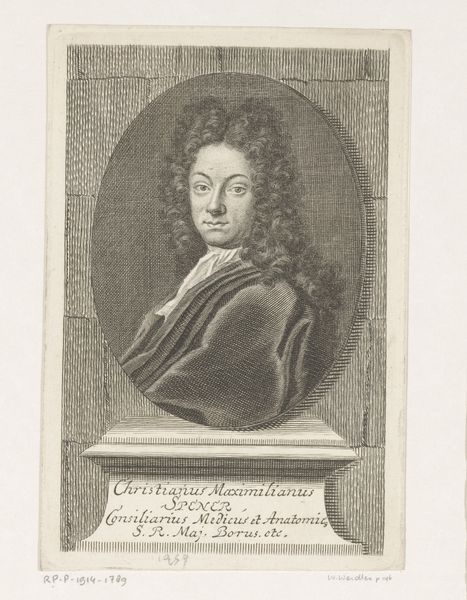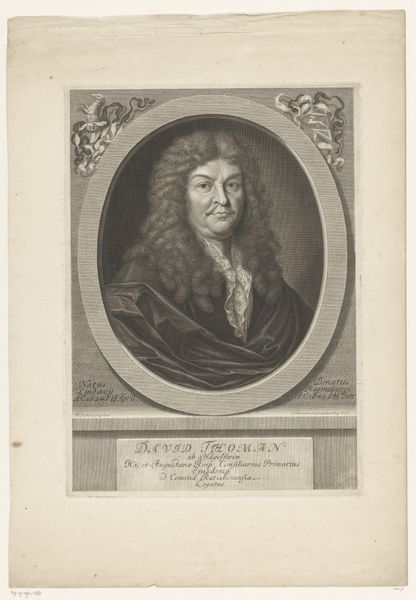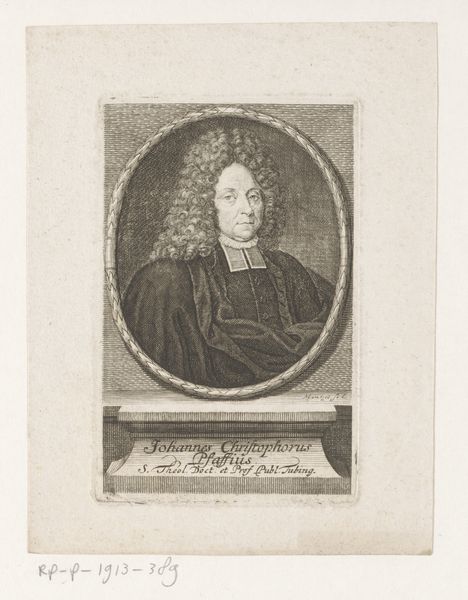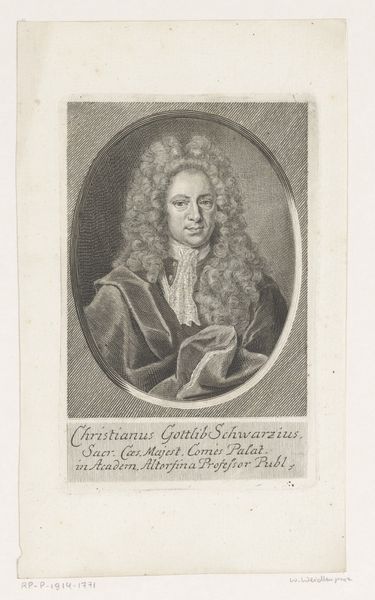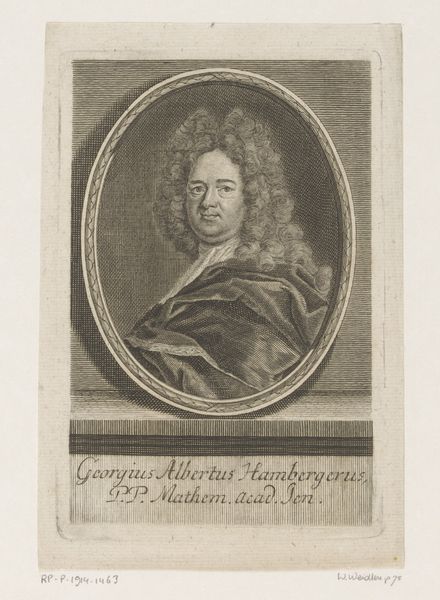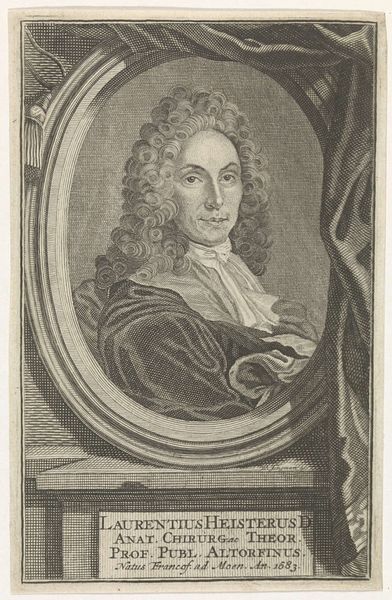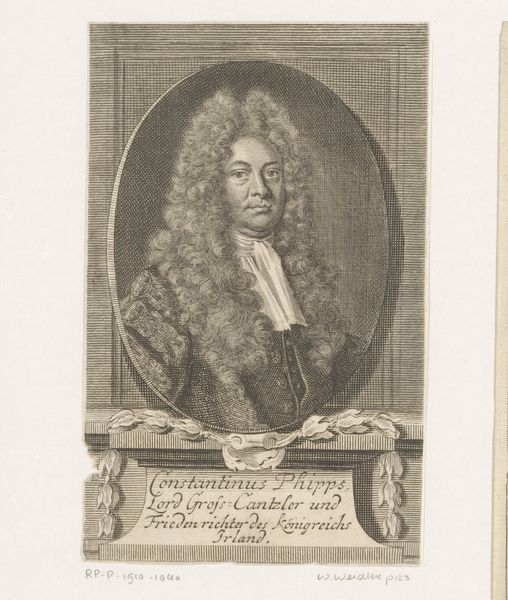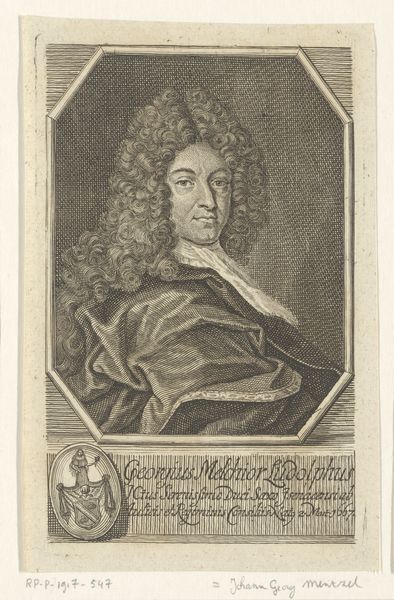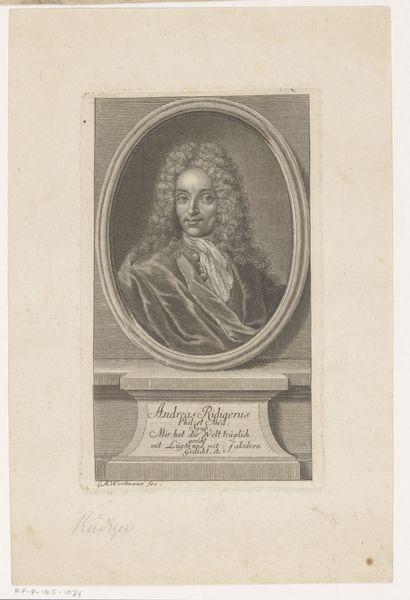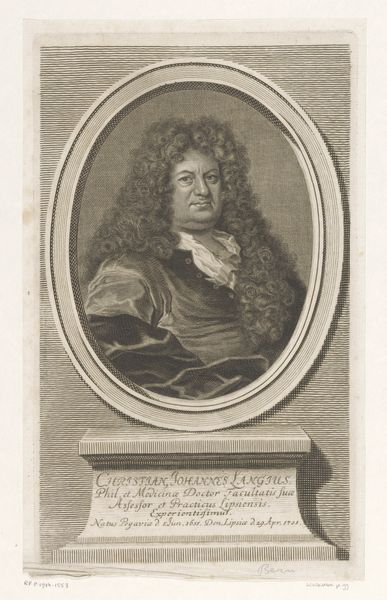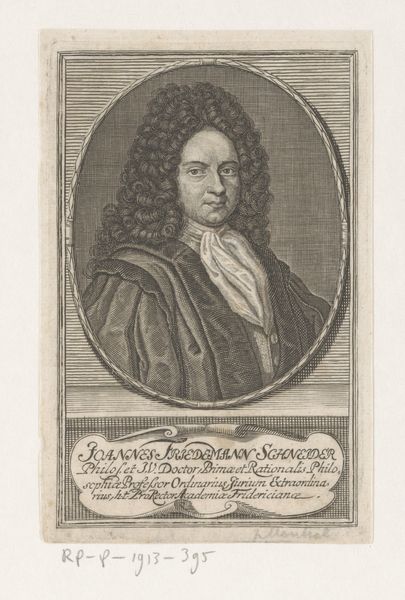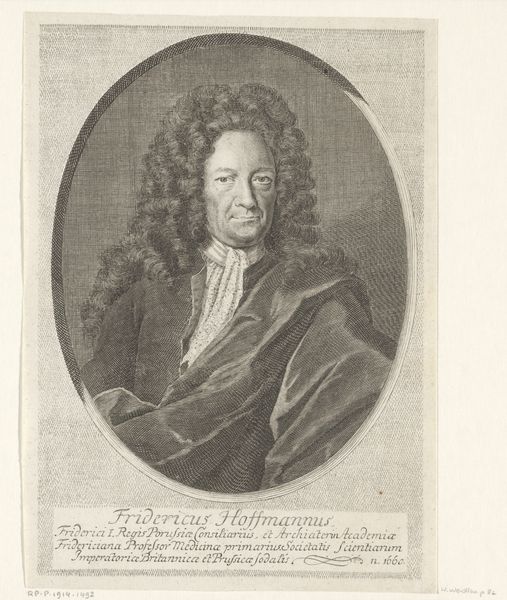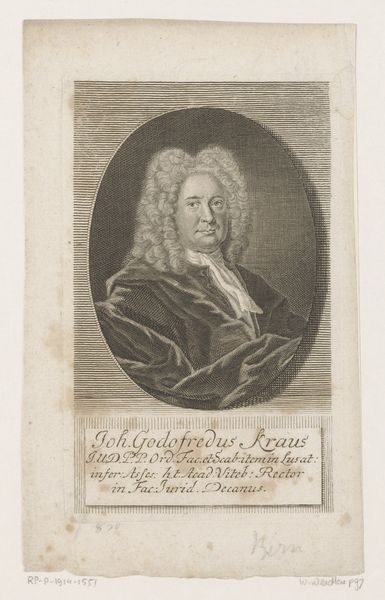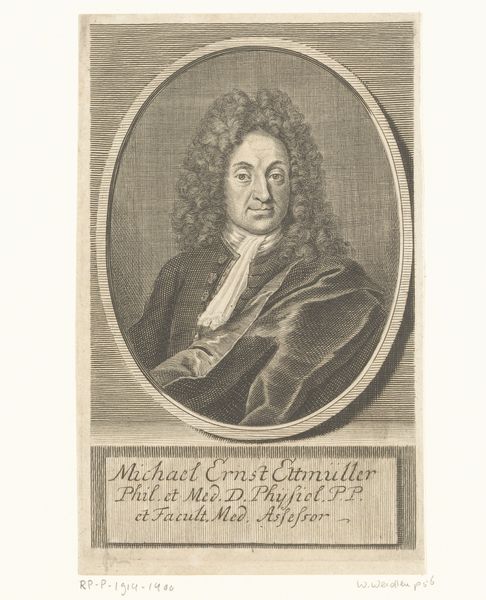
print, engraving
#
portrait
#
baroque
# print
#
old engraving style
#
figuration
#
line
#
engraving
Dimensions: height 151 mm, width 97 mm
Copyright: Rijks Museum: Open Domain
Curator: This is a portrait of Lorenz Heister, created around 1720 by Martin Bernigeroth. It's an engraving, a type of print. Editor: It strikes me as quite formal, even austere, despite the flowing wig. There's something almost clinical about the precise lines. Curator: Absolutely. Let's consider the means of its production. The line work is incredible. Imagine the skill and labor involved in creating those fine, consistent lines across the copper plate. It was a laborious process, but reproducible, leading to a wider distribution than an unique painted portrait would have allowed. Editor: It served a vital function, too, in visualizing power. Heister's profession is clearly important here. This is D. Laurentius Heisterus Anatom. Chirurg, ac Theor. Professor publ. Altorfinus... and look where this print of him ended up. It speaks to systems of power, of who had the privilege to be immortalized. Who would consume images like this? Consider access, consider literacy. Curator: Access becomes important as a Materialist here. Think of the different social circles that would purchase engravings or paintings. An engraving, printed in multiple copies, was a tool to grant notoriety to surgeons and scholars alike. Did this make them any more useful to society? No, this merely bolstered reputation which affects economy. Editor: The composition certainly reinforces that. The oval frame and the architectural base lend it an air of classical authority, very Baroque. We see an established male figure dominating the composition; but consider other Baroque era engravers—were they all celebrated this way? How does gender play into Bernigeroth's subject matter and art here? Curator: These prints played a role in shaping public perception and consumption patterns. Heister is being presented as a respectable and established professional and, through such imagery, the engraving acts a commodified item representative of stature and achievement. Editor: We've seen how Heister used materials to amplify systems of knowledge; through considering it, his portrait and figure opens discussions about politics and status. Thanks for these considerations of Lorenz Heister—his print is more than just an artwork.
Comments
No comments
Be the first to comment and join the conversation on the ultimate creative platform.
